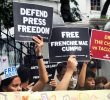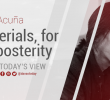DAVAO CITY—The National Democratic Front’s negotiating panel categorically said that it had not requested the Catholic Bishops’ Conference of the Philippines (CBCP) to mediate in the stalled peace negotiations between them and the government.
“It is the firm policy of the NDFP not to entrust any entity with the power of mediation in the peace negotiations. Such power to make decisions arbitrarily and impose them on the Parties to the peace negotiations could mean grave danger to the revolutionary movement and people,” said NDFP chief negotiator Luis Jalandoni in an emailed statement.
Jalandoni, a former catholic priest, issued a statement Thursday to rebuke CBCP’s statement on November 10 and published at interaksyon.com, that “rejected the proposal to mediate in the peace dialogue between the government and the communist group because of some “uncertainties.”
“We are not sure about the degree of cohesiveness that exists between the top echelons of the Front and local cadres of the New People’s Army,” said CBCP president Archbishop Socrates Villegas.
The CBCP maintained that “it cannot take in the role of initiating, convening, mediating or presiding over a dialogue between the National Democratic Front and government representatives” and added that it “will not lend itself to a fruitless exercise or to a charade visited on the entire country”.
“We are of the firm persuasion that under the present circumstances, this cannot be part of our ecclesial mandate as an episcopal conference,” noted Villegas.
“When the CBCP President speaks of the request to mediate in the government-NDF dialogue, such a request has never come from the NDFP,” said Jalandoni.
Jalandoni called the CBCP’s move as “presumptuous” as he emphasized that “the request to any third party to play a role in peace negotiations must be done by both Parties. Both Parties also have to agree to the type of role the third party will fulfill in the peace negotiations.”
The NDFP also assailed Villegas’ claim that mediating such dialogue with the communist group is “fruitless.”
“We strongly dispute the allegation that the peace negotiations have had no substantial fruit. The Hague Joint Declaration as framework of the peace negotiations, the Comprehensive Agreement on Respect for Human Rights and International Humanitarian Law (CARHRIHL) and other basic agreements are very significant results. Internationally these have won recognition, such as two European Parliament resolutions endorsing these agreements.”
Without any expectation since then from CBCP, Jalandoni noted that there have been “persistent efforts to strive for a just peace by the Philippine Ecumenical Peace Platform (PEPP), the Ecumenical Bishops’ Forum (EBF), the Pilgrims for Peace, the Sowing Seeds for Peace and KAPAYAPAAN Campaign for Just and Lasting Peace, which have prominent and significant Church leaders.”
The NDFP has expressed its “appreciation for church leaders in the Philippines who have hosted us when we visit our homeland. We welcome their friendly gesture. When they visit our NDFP International Office, we likewise welcome and host them.”
“We believe this kind of friendly exchange is beneficial to both sides and helps in fostering a spirit that is conducive to advancing the efforts to achieve a just and lasting peace in our country,” said Jalandoni. (davaotoday.com)










